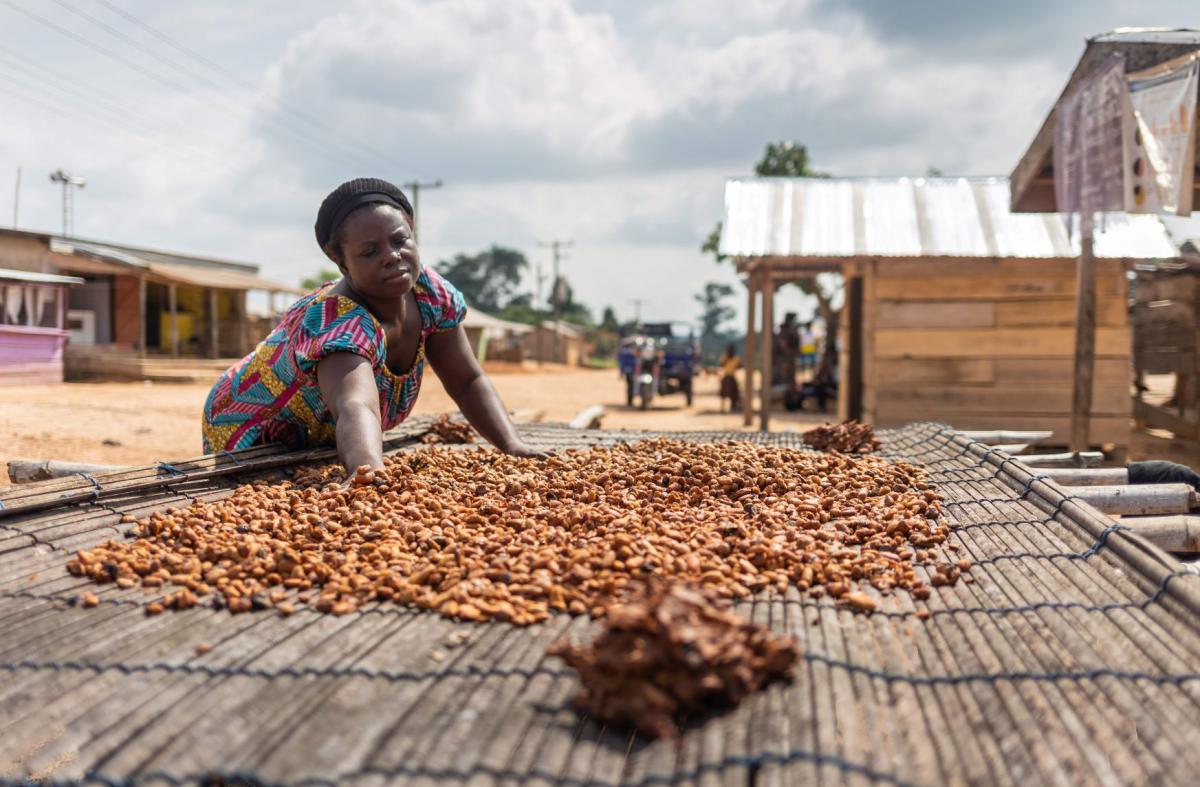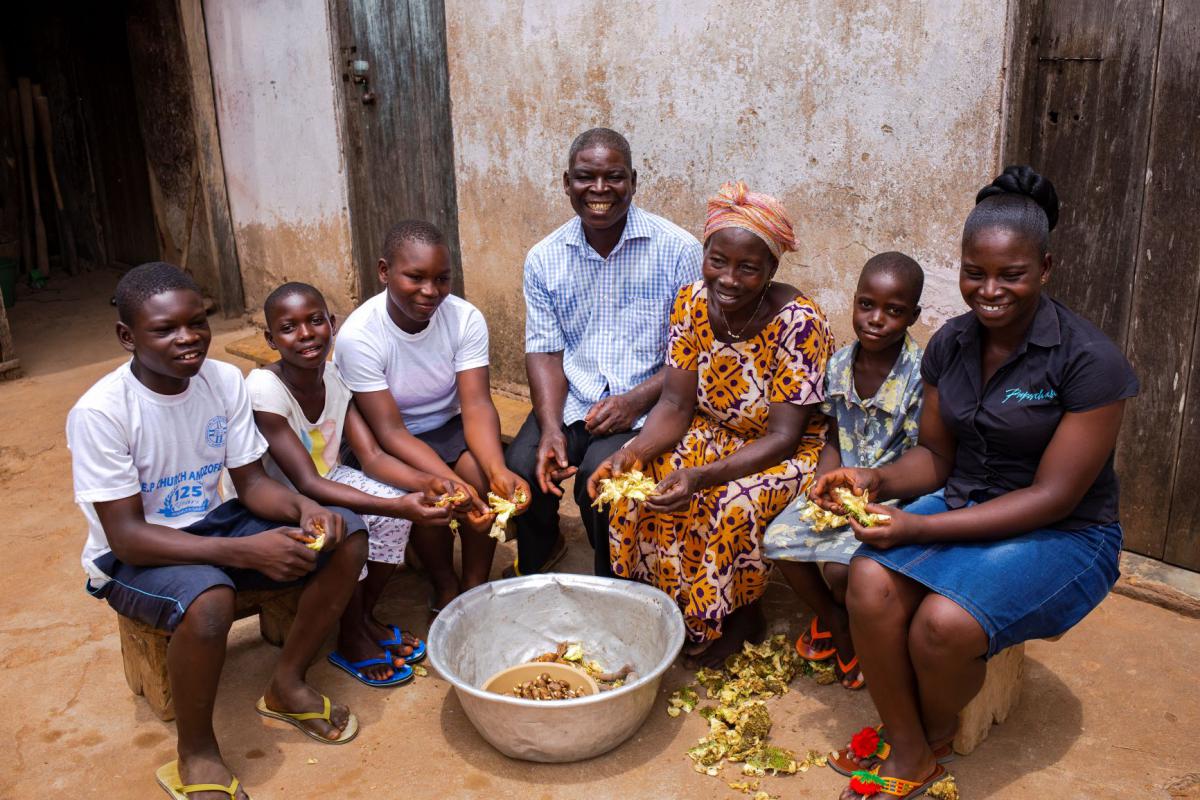
Cocoa smallholders trapped in poverty
Cocoa is an important source of employment and income for rural populations, particularly for smallholder farmers who grow most of the world’s cocoa. Nevertheless, most cocoa growers live in poverty, and the sector has been struggling to effectively address a large number of human rights violations. In 2018, Fairtrade International calculated that on average, cocoa farmer households earned only 37 percent of the living income in rural Côte d’Ivôire.
In addition, cocoa is one of the major drivers of deforestation, particularly in Côte d’Ivoire and Ghana. Together, they account for about two-thirds of the global cocoa production. In both countries, weak governance and law enforcement undermine the efforts to address many of the problems.
It’s time for Brussels to take action
Some progress has been made in the recent years, with a multitude of voluntary sustainability initiatives arising over the past decades, including certification schemes, voluntary corporate sustainability initiatives, and the Harkin-Engel Protocol aiming to end child labour. However, challenges in the sector remain. In general, these initiatives have failed to adequately reach all producers in the supply chain as well as the full array of companies in consumer countries, including many small and medium sized companies.
The EU is by far the largest importer and consumer of cocoa in the world, with the majority of it coming from West Africa. Therefore, the EU has more power and a larger responsibility than any other consumer market to drive change in the cocoa sector. The paper published on 2 December stresses that to achieve a sector-wide change, the EU should pursue partnerships with the governments of cocoa-producing countries, the industry and civil society in order to develop a regulatory and policy framework. This framework should place a due diligence obligation on all companies that are responsible for making cocoa available on the European market. Francesco Tramontin, Director, Global Public Affairs at Mondelēz International: “It’s time for Brussels to take action in the cocoa sector with one clear set of rules for all companies across the EU.”

Ghanaian cocoa farmer and entrepreneur Mawuse Hotor (right) with her family. Her parents Gabriel Hotor and Mary Ahotor are also cocoa farmers.
Raising the bar on living income
At Solidaridad, we believe that the call to action is clearly an important step in the right direction, but also strongly emphasize that the right to a living income and living wage for all actors across the supply chain should be explicitly included in any legislation aimed at sustainable supply chains. Boukje Theeuwes, Senior Policy Advisor at Solidaridad:
“A living income and living wage is a human right. It is key to ensure a decent standard of living and other fundamental human rights such as the right to food, water, housing, and health. The benefits farmers and workers receive must be sufficient to earn a living income and living wage in order for any sustainability initiative to be successful, including legislation.”
Solidaridad also stresses the potential drawbacks in legislating commodity by commodity. Theeuwes:
“The human rights abuses and environmental degradation mentioned in the paper go well beyond the cocoa supply chain and are very relevant challenges for many other sectors beyond cocoa as well. We insist on a broader approach to mandatory corporate due diligence obligations that aims to regulate other sectors as well.”
Please join
Solidaridad hopes other companies and organizations in the cocoa and other sectors will join forces in demanding ambitious European frameworks to raise the bar and achieve sustainable global supply chains. In this process, it is important to involve and work closely with stakeholders in producing countries, including local governments and producer/worker organizations. Theeuwes:
“Through an inclusive approach we can establish an overarching strategy at the European level that creates impact where it is most needed in the supply chain; at the producer level.”
